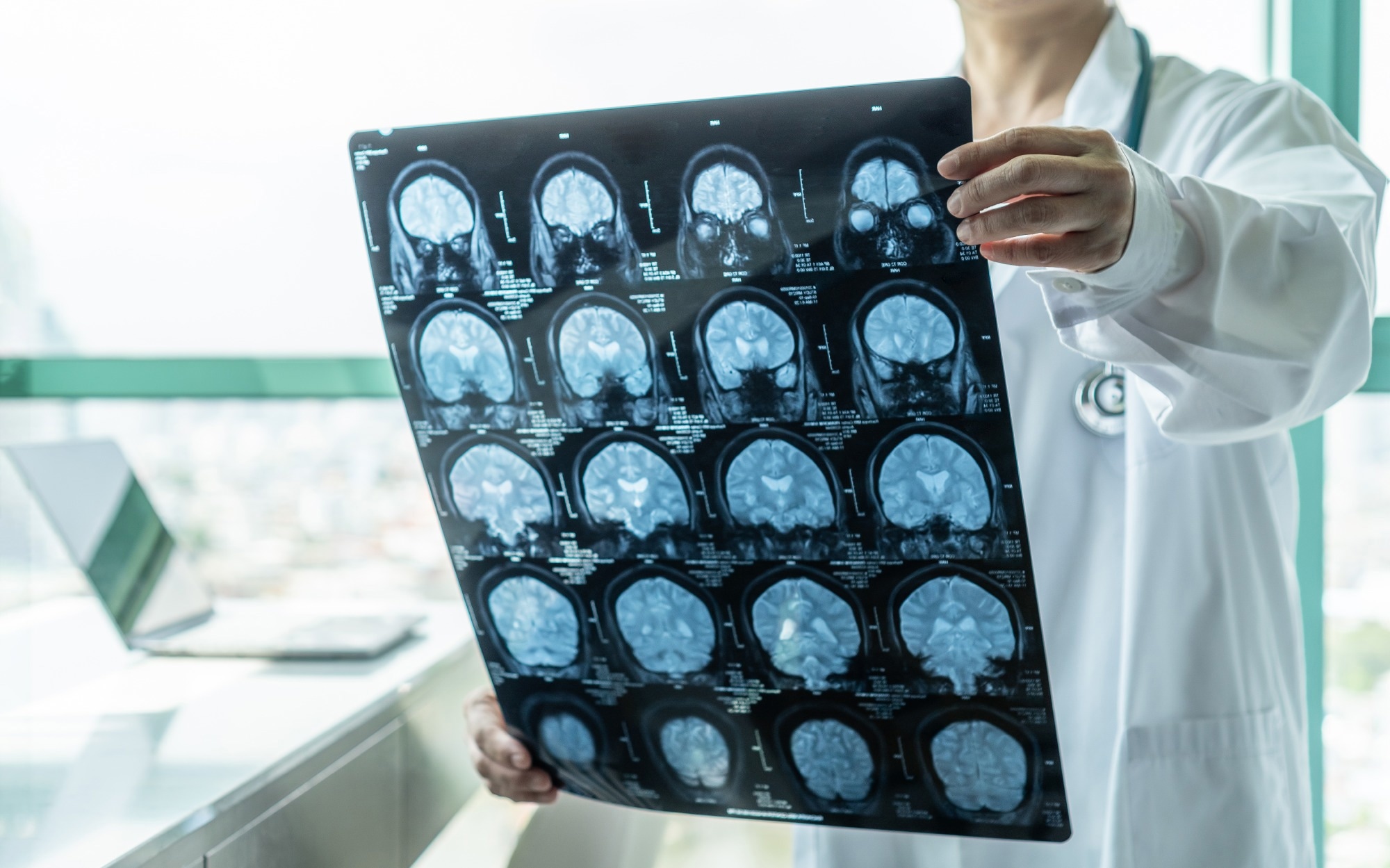They compared the influence of advanced biological age on time-to-event models for cause-specific and all-cause dementia, ischemic stroke, motor neuron disease (MND), and Parkinson’s disease (PD).
 Study: Clinical biomarker-based biological ageing and future risk of neurological disorders in the UK Biobank. Image Credit: Chinnapong/Shutterstock.com
Study: Clinical biomarker-based biological ageing and future risk of neurological disorders in the UK Biobank. Image Credit: Chinnapong/Shutterstock.com
Background
Aging increases the risk of various neurological disorders. Many prevalent neurological diseases have been linked to increasing chronological age (CA; however, their relationship with biological age (BA) is unknown. Biological age measures, such as epigenetic clocks, telomere length, and composite biomarkers, are created to describe age-related events more sophisticatedly than CA.
Clinically relevant BA measurement approaches exploit alterations in routinely used clinical biomarker levels, with studies reporting that in cases where BA exceeds CA, anxiety, depression, cancer, and mortality risks increase.
However, limited studies have examined the links between the biological age measurements and the likelihood of neurological diseases, warranting further research.
About the study
Researchers evaluated the link between biological age and neurological disease incidence among UKBB participants in the prospective cohort study.
The team studied 325,870 UKBB participants aged 37 to 73, recruited from 2006 to 2010. The participants did not suffer from neurological conditions at study initiation.
Three priorly described biological age measures based on 18 regularly assessed biomarkers [Klemera-Doubal method age (KDMAge), PhenoAge, and homeostatic dysregulation age (HDAge)] were used for analysis.
Individuals with incomplete data on biological age measures and covariates and those with a history of dementia, ischemic stroke, MND, or PD were excluded. The United States National Health and Nutrition Examination Surveys (US NHANES) data were combined with biomarker information to train and validate the BA measures.
At study initiation, the participants filled out questionnaires, completed functional and physical measurements, and provided biological samples.
The team evaluated the impact of advanced biological age on new-onset neurological diagnoses, including cause-specific and all-cause dementia, ischemic stroke, MND, and PD using survival models.
Neurological diseases were diagnosed using the International Classification of Diseases, tenth revision (ICD-10) codes obtained from inpatient hospital and mortality register records. The participants were followed up until disease diagnosis, death, or study termination, whichever occurs first.
PhenoAge and KDMAge were regressed on chronological age so that the residual values could be considered as deviations between biological and chronological age. HDAge values were derived from individual physiology deviations from a disease-free reference sample and were log-transformed before assessment due to skewed distribution.
Cox proportional-type hazard regression modeling was performed to determine the hazard ratios (HRs). Covariates adjusted for included birth year, sex, body mass index (BMI), ethnicity, alcohol intake, smoking status, and deprivation.
Results
The mean age of the study participants was 56 years, and 54% were female. During a nine-year follow-up (mean), 1,397 cases, 2,515 cases, 679 cases, and 203 cases of dementia, ischemic stroke, Parkinson’s disease, and motor neuron disease, respectively, were reported. KDMAge (HR, 1.3), PhenoAge (HR, 1.3), and HDAge (HR, 1.2) were significantly linked to elevated any-cause dementia risks.
All biological age measures were robustly related to vascular dementia, whereas weaker links were observed for the development of Alzheimer’s disease (AD).
Likewise, the team found a significantly elevated risk of biological age measures on ischemic stroke: KDMAge (HR, 1.4), PhenoAge (HR, 1.4), and HDAge (HR, 1.3). Weakly positive associations were observed between advanced biological age and MND risk, and only HDAge showed a significant association with motor neuron disease (HR 1.2).
Likewise, non-significant relationships were found between biological age and PD risk; however, unlike other outcomes, the HR values obtained for PD were under 1.0 (the HR values were 0.96, 0.95, and 0.88 for KDMAge, PhenoAge, and HDAge, respectively).
Stratifying by gender and age yielded similar results, although biological age was more strongly linked to dementia among younger females aged below 60 years.
Elevated forced expiratory volumes were related to lower ischemic stroke and dementia risks, whereas erythrocyte count elevations were related to increased PD and dementia risks.
In the sensitivity analysis, eliminating individuals diagnosed with neurological disorders within five years of their biological age evaluation showed usually smaller effect sizes but similar direction of effect, with significant relationships persisting for vascular and all-cause dementia, ischemic stroke, and PhenoAge in AD.
Conclusions
Overall, the study findings showed that increased biological aging was linked to an increased risk of various age-related neurological diseases, with ischemic stroke, vascular-type dementia, and dementia due to any cause having the highest impact sizes. Reversing biological age may reduce the risk of dementia and stroke.
Controlling for critical variables in disease-specific modeling (including smoking history and the prevalence of diabetes, hypertension, and dyslipidemia), strong relationships persisted, demonstrating that these biological age indicators have relevance beyond simple cardiovascular risk estimation.